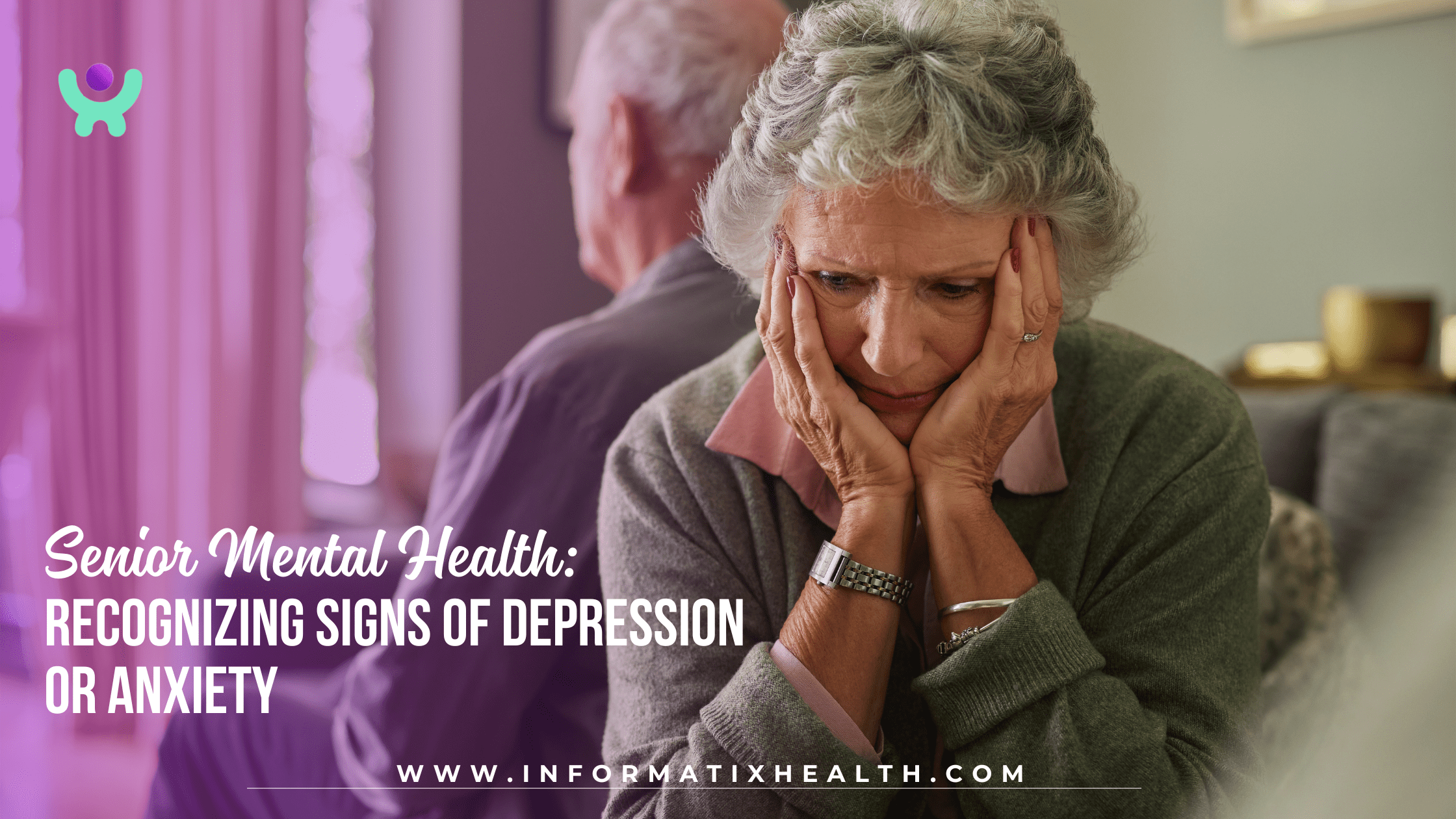As we age, mental health becomes a crucial aspect of overall well-being. Recognizing the signs of depression and anxiety in seniors is essential for early intervention and effective treatment. Here are some key indicators to watch for, along with examples and resources.
Signs of Depression
Depression in seniors can manifest differently than in younger individuals. Common signs include:
- Persistent Sadness: Seniors may express feelings of hopelessness or a lack of interest in activities they once enjoyed. For instance, a senior who used to love gardening may suddenly stop tending to their plants.
- Changes in Appetite: Noticeable weight loss or gain can be a sign of depression. A senior might lose interest in cooking or eating, leading to significant weight changes.
- Sleep Disturbances: Seniors may experience insomnia or oversleeping. If a senior is frequently complaining about not being able to sleep or is excessively tired during the day, this could indicate depression.
- Fatigue and Low Energy: A general feeling of tiredness that doesn’t improve with rest can be a symptom. For example, a senior might find it difficult to get out of bed or complete daily tasks.
- Social Withdrawal: Seniors may isolate themselves from friends and family. If a previously social individual stops attending gatherings or declines invitations, this could be a red flag.
- Physical Symptoms: Depression can present with unexplained aches and pains. Seniors may frequently visit doctors for physical issues that have no clear medical cause.
Signs of Anxiety
Anxiety can also significantly affect seniors, often co-occurring with depression. Signs to look for include:
- Excessive Worry: Seniors may express constant worry about health, finances, or family. For example, they might obsess over minor health issues, fearing they are serious.
- Panic Attacks: Symptoms may include heart palpitations, sweating, or feelings of impending doom. A senior might suddenly become very anxious in situations that previously did not bother them.
- Restlessness: Difficulty relaxing or staying still may be a sign of anxiety. A senior might pace around the house or have trouble sitting through a movie.
- Difficulty Concentrating: Anxiety can impair cognitive function. Seniors may find it challenging to focus on tasks or remember details, which can be mistaken for dementia.
- Physical Tension: Chronic muscle tension can be a sign of anxiety. Seniors may complain about tightness in their neck or back or may frequently visit a chiropractor.
Importance of Early Recognition
Early recognition of these signs is vital for several reasons:
- Improved Quality of Life: Timely intervention can significantly enhance a senior’s quality of life, allowing them to enjoy activities and relationships.
- Better Management of Health Conditions: Mental health directly influences physical health. Treating depression or anxiety can lead to better management of chronic conditions.
- Prevention of Serious Complications: Untreated depression or anxiety can lead to severe complications, including increased risk of suicide.
What to Do If You Recognize These Signs
If you or someone you know is exhibiting these signs, consider the following steps:
- Talk Openly: Encourage open conversations about feelings. Approach the topic gently and express concern without judgment.
- Seek Professional Help: Consult a healthcare provider or a mental health professional for evaluation and treatment options.
- Encourage Social Interaction: Engage seniors in social activities, even if they resist at first. Social support is crucial for mental health.
- Promote Physical Activity: Exercise can help alleviate symptoms of depression and anxiety. Encourage light walks or participation in group exercise classes.
Need Support for a Loved One? We’re Here to Help.
At Informatix Health, we understand how vital mental and emotional well-being is to healthy aging. If you’re concerned about a senior in your life who may be showing signs of depression or anxiety, our compassionate home health care team in Weymouth, Massachusetts is ready to support you.
Whether you need skilled nursing, companion care, or simply someone to talk to—Informatix Health offers personalized, in-home support to help seniors thrive both physically and emotionally.
Contact us today to learn more.
Let’s work together to give your loved one the care, attention, and respect they deserve—right in the comfort of home.


